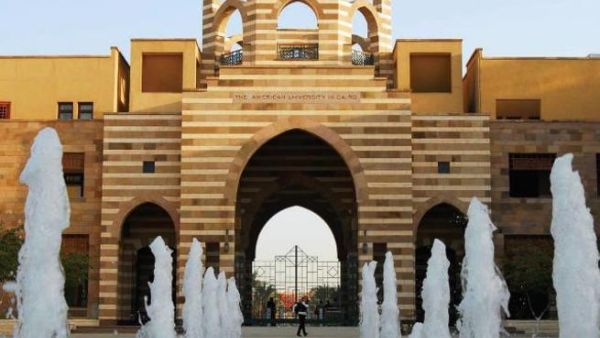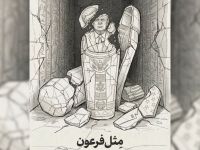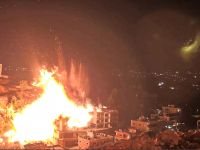AUC helps restore burned Institut d'Egypte documents

The Rare Books and Special Collections Library and Archives (RBSCL) at The American University in Cairo (AUC) sent nine of its staff members last week to assist Dar El Kutub [Egyptian National Library] in the salvaging of books and documents damaged during the recent fire at the Institut d’Egypte. These volunteers, who are experienced in handling rare and fragile materials, helped to identify what items might be retrievable. “Tragically, the damage sustained was considerable, representing a great loss to the cultural history of Egypt,” said Philip Croom, associate dean of RBSCL. “However, the RBSCL professional conservation team is willing to work closely with Dar El Kutub for some time to help in the restoration of those items that can be saved.”
RBSCL staff members assisted in the first effort to salvage these materials, chief among them were Daad Abdel Razik, associate director of RBSCL, and Mohamed Abu Bakr, officer for RBSCL conservation, along with Ahmed Fouad, senior conservator. Abdel Razik coordinated the emergency help on the first day, gathering volunteers and supplies for Dar El Kutub. “The volunteers have returned several times to continue the effort of sorting through the debris resulting from the fire, since the books had become charred and very mixed up masses of wet paper,” said Croom.
Describing the process, Croom explained that sorting salvageable from lost items starts with drying out everything on newspapers and sheets in the garden, and then categorizing them in the hope of being able to reassemble a book or its parts someday. “It’s long, tiring and discouraging, given the magnitude of the burned items,” said Croom, adding that a typical work day involves two shifts of five to eight hours, with two or more RBSCL volunteers.
Items that were not completely burned or scorched, Croom noted, are sifted from the mess. “There is hope that some things can be restored, and this is where the real value of our rare books expertise will come into play and where we can be most helpful to Dar El Kutub and Institut d’Egypte,” he said. “I am hoping that they will let us take books back to our New Cairo campus, where they can be cleaned and rebound by our excellent conservation laboratory staff.”
Reflecting on the importance of digitally archiving documents, Croom said, “This experience is not only an opportunity to help out a fellow library and lend what is real expertise in saving Egypt’s cultural heritage, but is also a wake-up call to all of us to endeavor to make digital surrogates of our documents and other archival collections because they contain unique information available in no other format. Rare books are seldom single copies, so we assume that books lost in this fire have ‘brothers and sisters’ in London, Paris or Rome published at the same time. But original primary sources? Lost forever. I have heard that unedited books, documents or parts of books and documents were among the holdings [caught in the fire], things like personal accounts from centuries past. If true, then the loss is all the greater.”
Croom noted that the establishment of the Digital Archive Research Repository (DARR) and the RBSCL Digital Collections digital/Web projects become even more important in light of recent events. “With digital surrogates securely online or on our servers, documents are preserved forever.” he said. “We need to continue to push this as a funding priority, even in the midst of the economic crisis we’re all facing.”
The Institut d’Egypte is a research center that was built by Napoleon Bonaparte on Qasr al-Aini Street during the French invasion of Egypt in the 18th century. Home to thousands of rare books and manuscripts, including an original copy of Description de l’Egypt, the building was set ablaze during recent clashes between military forces and protesters on December 17. Many rare documents dating back to Bonaparte’s 1789 campaign in Egypt were damaged by fire or by water used to put out the flames.
Background Information
American University of Cairo
Founded in 1919, AUC is a leading English-language, American-accredited institution of higher education and center of intellectual, social and cultural life of the Arab world. Its community of students, parents, faculty and staff, trustees, alumni and other generous sponsors represent more than 60 countries. The University stands as a crossroads for the world’s cultures and a vibrant forum for reasoned argument, spirited debate and understanding across the diversity of languages, facilities and human experiences.






